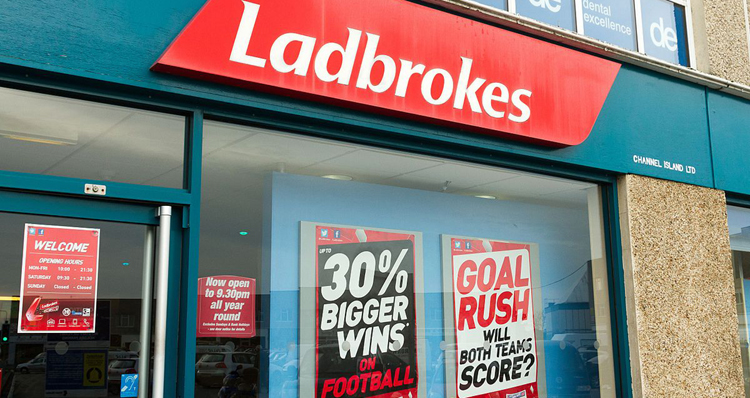This week, two top United Kingdom betting firms, Gala Coral, and Ladbrokes are expected to hear if the UK’s Competition and Markets Authority (CMA) will allow the proposed merger of the two companies.
Reports suggest that the CMA will allow the deal worth £2.3 billion (€2.9 billion/$3.3 billion) to proceed, easily edging past William Hill as the largest bookmaker in Great Britain. Currently, Ladbrokes and Coral are second and third behind William Hill. It is expected, however, that the creation of the combined entity will force the companies to sell off hundreds of their betting shops.
Having concluded that the almost 9,000 shops that comprise retail betting include the online market, Ladbrokes and Coral are confident that the merger will be allowed by the CMA. However, the European Commission’s decision last week to block the take-over attempt of O2, a UK mobile network, by the owner of rival Three, which the CMA supported, is seen by some analysts as an indicator that the Ladbrokes and Coral deal could be doomed. The European competition watchdog opposed the O2-Three deal because it believes that reducing the market from four operators to three leads to price increases and harms competition. If successful, the Ladbrokes and Coral deal would net a similar change in the retail betting market.
Worry over competition within the retail market prompted U.K.-based William Hill, among other interested parties, to request the CMA halt the merger. William Hill cited pressures from competitors in the retail market were “more local that national” and based on quality of service and location, in its submission to the inquiry. And that a significant impact on retail had not been made by digital betting, a claim backed by a Times newspaper report, which showed that approximately 75 percent of retail punters place their bets in shops only, according to iGaming Business.
Industry insiders believe that if the merger is successful, the CMA will add a caveat that forces Ladbrokes and Coral to sell about 500 of their combined 4,000 betting shops, which employ approximately 30,000 workers, in order to satisfy competition concerns. The newly created group would reportedly have £2.1bn in revenues and £392m in underlying profits. It is expected that the deal will save the companies £65m a year, mainly due to the removal of duplication in the back office, as reported by The Guardian.
After two decades or more of merger talks, in June 2015, Ladbrokes and Gala Coral announced that they were considering a merger and the next month announced that they had reached a deal that would combine Ladbrokes 2,100 shops and 1,845 from Coral, creating one gambling giant and that the new group will be called Ladbrokes Coral.



